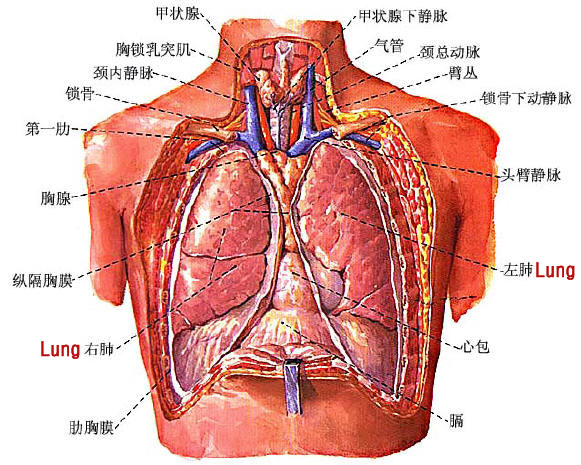Govern the Skin
The function of the skin is to protect the body, excrete sweat and adjust body temperature. The relationship between the lung and the skin can be understood from the following two aspects. One is that the lung can disperse and transport the wei-qi (defensive qi) and body fluid to the skin to warm, nourish and moisten the skin so as to maintain the normal functions of the skin.
The other is that the normal opening and closing activities of the sweat pores on the skin can excrete sweat, adjust body temperature, assist the lung to respire and discharge the turbid qi. That is why sweat pores are also called "qi gate" in TCM. If the functions of the lung are normal, the skin will be well nourished, manifesting as fine and close skin, appropriate excretion of sweat and strong power in resisting exogenous pathogenic factors.
If lung-qi and lung-yin are deficient, it will lead to dry skin, profuse sweat and susceptibility to cold. When exogenous pathogenic factors invade the body, they usually attack the skin first and then affect the lung, stagnating lung-qi and leading to such symptoms as aversion to cold, fever, stuffy nose and cough. Besides, TCM also holds that "the lung governs the skin and hair", a combination of the terms "the lung governing the skin", and "the lung having its external manifestion on the hair". The idea will be described in following section.

Open into the Nose
The nose, an organ for smelling, is a route for air to be breathed in and out of the body. Since the lung controls respiration and dominates qi in the whole body, so the nose is regarded as the orifice into which the lung opens. In fact the smelling and ventilating functions of the lung are closely related to the function of lung-qi. Only when lung-qi is harmonious and respiration is smooth can the nose be sensitive in smelling. For example, failure of lung-qi to disperse leads to stuffy nose, running nose and hyposmia; insufficiency of lung-qi brings on unsmooth respiration with the nose.
The throat, located posterior and inferior to the nose, is an organ in charge of vocalization and serves as the gate of respiration. Since the lung meridian runs across the throat and the lung itself governs respiration, the ventilation and vocalization are closely related to the functions of the lung. If lung-qi and lung-yin are deficient or if lung-qi fails to disperse, it will not only lead to un-smoothness of the throat in ventilation, but also bring on changes of vocalization, consequently resulting in pruritus in the throat, sore throat, hoarse voice or aphonia.
Manifestation on Body Hair
Since the lung dominates the skin, the defensive qi and body fluid dispersed by the lung nourish the skin and the body hair. With proper nourishment of the defensive qi and body fluid, the body hair appears lustrous and is not easy to lose. Thus the condition of the body hair reflects the functional states of the lung. If lung-qi and lung-yin are insufficient, the body hair cannot get enough nourishment, making the body hair dry and easy to break and lose.







